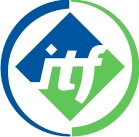The focus of the “PortSkill 4.0” project, which was introduced at an online press conference today, is the impact of the digital transformation on careers in the Port of Hamburg.
PortSkill 4.0 has a project volume of around € 3.2 million.
https://hhla.de/en/media/press-releases/detail-view/digital-skills-for-port-workers
The project is funded by the Innovative
Hafentechnologien II (innovative port technologies) (IHATEC II) development
programme of the German Federal Ministry of Transport and Digital
Infrastructure as well as co-payments from the partner companies. The lead
manager is ma-co maritimes competenzcentrum, corporate partners are HHLA and
the BLG LOGISTICS GROUP, and social partners are ver.di and the Association of
German Seaport Operators (Zentralverband der deutschen Seehafenbetriebe e.V, or
ZDS).
Gerrit Küther, Managing Director of ma-co maritimes
competenzcentrum, explains the project’s goal: “With PortSkill 4.0, we want to
scientifically determine which skillsets and qualifications are needed for
working in ports in the future. We then want to teach these skills in a digital
testing and training centre, an “education hub”. In the centre, port work 4.0
is being piloted as part of learning sequences.”
The Chairwoman of the Sociopolitical Committee of ZDS, Ulrike Riedel, (BLG LOGISTICS), said: “The future of work at the port will look different to today. We need to prepare ourselves for this and seize the opportunities that arise from this transformation. Supporting PortSkill 4.0 with the IHATEC II funds underlines the importance of these processes.”
Maya Schwiegershausen-Güth, head of the maritime economy group at
ver.di, emphasised that the digital transformation can only succeed if it
develops together with employees. “In the interest of the employees, we must
closely monitor the changes in work at the port that come as a result of
digitalisation. Training and education are the key to securing sustainable jobs
in German port companies and to create new ones.”
The Vice-Chairman of the Sociopolitical Committee of
ZDS, Torben Seebold (HHLA), also
raised this point: “The project creates necessary framework for a
transformation process in the German port industry based on social partnership.
Highly qualified employees are the key factor to maintaining and expanding the
competitiveness of the German terminals.”










